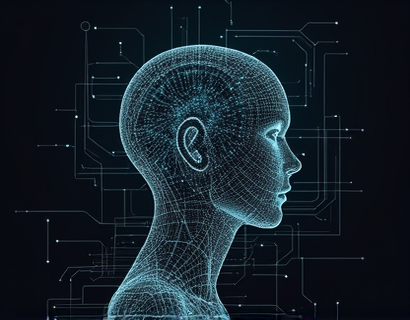AI-Powered Task Management: Elevating Personal and Professional Productivity with Intelligent Agents
In the fast-paced world of today, the demand for efficient task management solutions has never been higher. The integration of Artificial Intelligence (AI) into task management systems represents a significant leap forward, offering unprecedented levels of efficiency and productivity. AI-powered task management leverages intelligent agents to intelligently handle both personal and professional tasks, streamlining operations and enhancing overall efficiency. This technology is not just a tool but a transformative force that redefines how we approach task management, allowing individuals and businesses to focus on high-priority activities and maximize their potential.
The core idea behind AI-powered task management is to create intelligent agents that understand, predict, and automate tasks based on user preferences and work patterns. These agents are designed to learn from user behavior, adapt to new inputs, and perform tasks that traditionally required human intervention. By offloading routine and repetitive tasks to these intelligent agents, users can concentrate on strategic, creative, and high-value activities that drive growth and innovation.
Understanding AI-Powered Intelligent Agents
Intelligent agents in task management are sophisticated software entities that can perceive their environment through sensors (data inputs), act upon that environment through actuators (task execution), and use learning algorithms to improve their performance over time. These agents can be integrated into various platforms and applications, from calendar management and email organization to project tracking and inventory control.
One of the key features of intelligent agents is their ability to understand context. They can analyze emails, messages, and calendar entries to identify tasks, set reminders, and prioritize activities based on urgency and importance. For instance, an intelligent agent can recognize a meeting invitation and automatically update the user's calendar, send a confirmation to the organizer, and notify relevant team members, all without manual intervention.
Enhancing Personal Productivity
For individuals, AI-powered task management can significantly enhance personal productivity. By automating mundane tasks, such as scheduling appointments, setting reminders, and managing to-do lists, these intelligent agents free up valuable time and mental energy. This allows users to focus on more meaningful and productive activities, whether it's working on a personal project, spending time with family, or pursuing hobbies.
Personal AI assistants can also provide insights and recommendations based on user habits and preferences. For example, an intelligent agent might analyze a user's schedule and suggest the best times for focused work, taking into account factors like energy levels and previous productivity patterns. This personalized approach ensures that users can optimize their daily routines for maximum efficiency.
Boosting Professional Productivity
In a professional setting, the benefits of AI-powered task management are equally profound. Businesses can leverage these intelligent agents to streamline workflows, improve collaboration, and enhance decision-making processes. Here are some specific ways AI can elevate professional productivity:
- Automated Task Assignment: AI agents can analyze project requirements and team member availability to automatically assign tasks, ensuring that the right people are working on the right tasks at the right time.
- Real-Time Updates: Intelligent agents can monitor project progress and provide real-time updates to all stakeholders, reducing the need for manual status reports and meetings.
- Predictive Analytics: By analyzing historical data and current trends, AI agents can predict potential bottlenecks and suggest proactive measures to mitigate risks.
- Enhanced Collaboration: AI can facilitate better communication and collaboration by summarizing discussions, extracting key points, and ensuring that all team members are on the same page.
Moreover, AI-powered task management tools can integrate seamlessly with existing business software, such as CRM systems, project management tools, and communication platforms. This integration creates a cohesive ecosystem where data flows smoothly, and tasks are managed efficiently, reducing the friction often associated with multi-platform workflows.
Case Studies and Real-World Applications
Several organizations have already embraced AI-powered task management and seen significant improvements in productivity and efficiency. For instance, a mid-sized marketing firm implemented an AI-driven task management tool to handle campaign planning and execution. The tool automatically assigned tasks based on team member expertise, set deadlines, and sent reminders. As a result, the firm reported a 30% reduction in project completion time and a 25% increase in client satisfaction.
In the healthcare sector, a large hospital adopted an AI-powered system to manage patient care tasks. The system prioritized patient requests, scheduled appointments, and alerted staff to critical updates. This led to a 40% reduction in patient wait times and improved overall patient care quality.
These case studies demonstrate the versatility and impact of AI-powered task management across different industries. By automating routine tasks and providing actionable insights, these intelligent agents help organizations achieve their goals more efficiently and effectively.
Challenges and Considerations
While the benefits of AI-powered task management are clear, there are several challenges and considerations that users should be aware of. One of the primary concerns is the initial setup and integration process. Implementing an AI-driven task management system requires careful planning to ensure that it aligns with the organization's specific needs and workflows.
Another consideration is data privacy and security. Since these systems often handle sensitive information, it's crucial to choose solutions that comply with data protection regulations and offer robust security measures. Users should also be cautious about over-reliance on AI, as maintaining a balance between automation and human oversight is essential for optimal performance.
Additionally, the effectiveness of AI-powered task management depends on the quality of data input. Inaccurate or incomplete data can lead to misinterpretations and poor task management decisions. Therefore, users must ensure that the data fed into the system is accurate and up-to-date.
Future Trends in AI-Powered Task Management
The field of AI-powered task management is rapidly evolving, with several exciting trends on the horizon. One such trend is the integration of natural language processing (NLP) to enhance the way users interact with intelligent agents. NLP allows for more natural and intuitive communication, enabling users to give voice commands or type in conversational language, making the experience more user-friendly.
Another trend is the development of multi-agent systems, where multiple AI agents work together to manage complex tasks and projects. These systems can handle more intricate workflows and provide a more comprehensive solution for businesses with diverse operational needs.
Furthermore, the rise of edge computing is set to revolutionize AI-powered task management by processing data closer to the source, reducing latency and improving response times. This is particularly beneficial for real-time task management and collaboration in remote or distributed teams.
Conclusion
AI-powered task management represents a significant advancement in the way we handle personal and professional tasks. By automating routine activities and providing intelligent insights, these systems enable users to focus on high-value tasks that drive growth and success. As the technology continues to evolve, we can expect even more sophisticated and user-friendly solutions that further enhance productivity and efficiency.
For productivity enthusiasts and business professionals, embracing AI-powered task management is not just an option but a strategic move towards a more efficient and fulfilling work life. By leveraging the power of intelligent agents, individuals and organizations can unlock their full potential and redefine what's possible in the realm of task management.











































